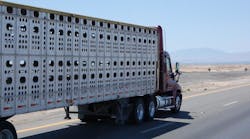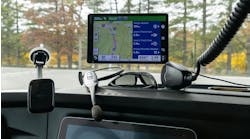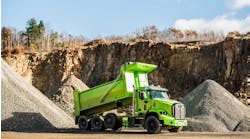Livestock haulers are likely to receive an additional waiver from the electronic logging device (ELD) mandate while longer-term fixes are considered, Transportation Secretary Elaine Chao said.
A 90-day waiver issued in December is scheduled to expire on March 18. Three senators raised the livestock issue with Chao during an infrastructure funding hearing on March 1 held by the Senate Committee on Environment and Public Works.
“I’m very concerned about this issue,” Chao said in response to a question from to Sen. Jerry Moran (R-KS).
One pending waiver request with DOT would offer livestock haulers a five-year exemption from the ELD mandate. The secretary hinted another shorter-term waiver was more likely, and stressed this was a problem with the hours-of-service rule that needs a permanent fix through legislation.
Moran said legislative efforts were underway, but it was unlikely something would be approved by March 18. Chao told Sen. Joni Ernst (R-IA) she could not specify exactly when a decision would be made, but said she was “sympathetic” and understands the need for clarity.
Later in the hearing, Sen. Tammy Duckworth (D-IL) also urged Chao to take quick action on the issue.
While the ELD waiver does not change existing HOS rule, livestock haulers have long said the mandate did not consider the hauling of living animals. They are currently exempted from HOS if traveling with a 150 air-mile radius of the location where animals were loaded.
Moran also pressed Chao on rest area commercialization. He noted that during the confirmation process, she indicated she would side with Congress, which has voted against the idea. However, the Trump administration’s infrastructure plan included the concept, which Moran said could hurt competition in rural areas.
“I hear you,” Chao responded.
The two-hour hearing, which also included R.D. James, assistant secretary of the Army for Civil Works, served mainly as a review of President’s Trump outline for a $1.5 trillion infrastructure funding plan.
Several Democrats expressed skepticism that $200 billion in federal funds would leverage the amount of additional investment the administration has predicted. They also raised concerns whether Trump’s push to speed permitting reviews and to roll back regulations could have unintended environmental and other consequences.
In her opening comments, Chao said costs associated with regulations decreased by $312 million in 2017, and are on track to drop by $500 million in 2018.



